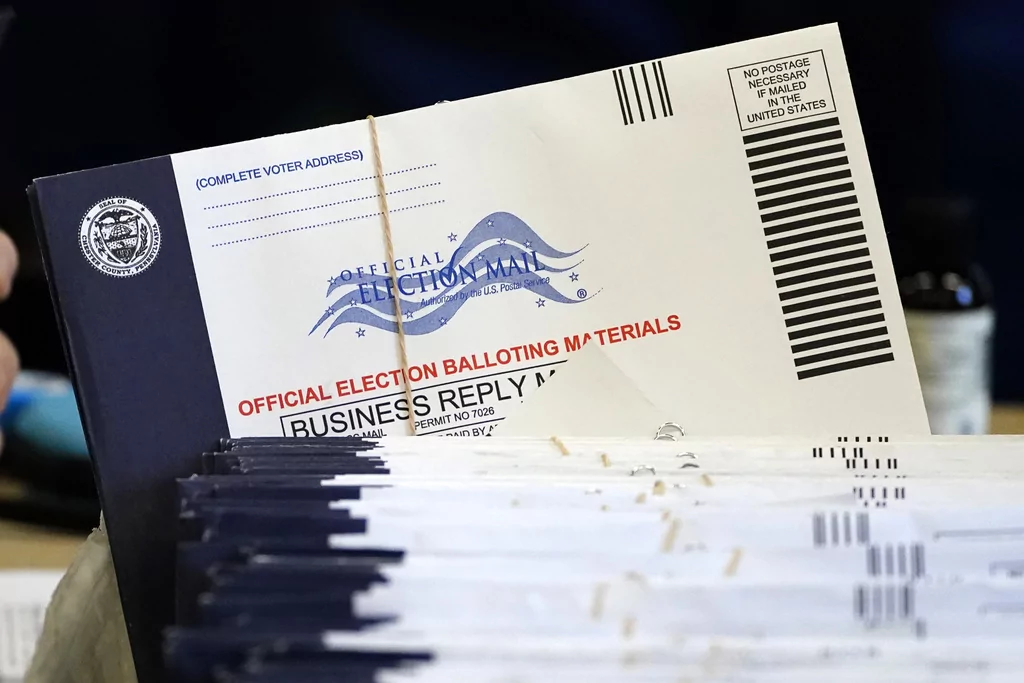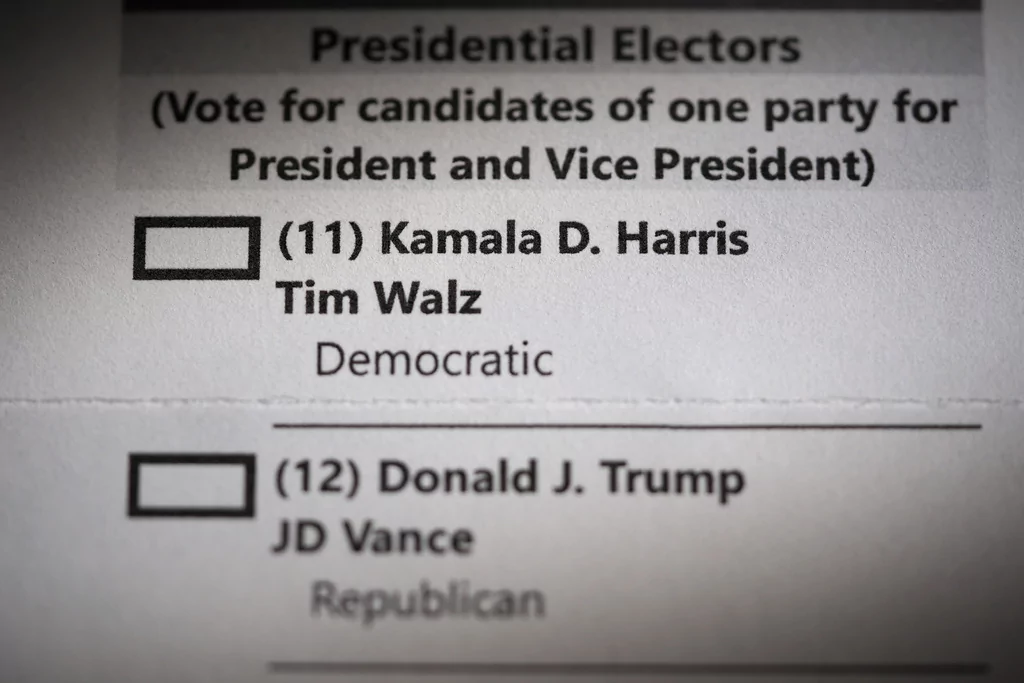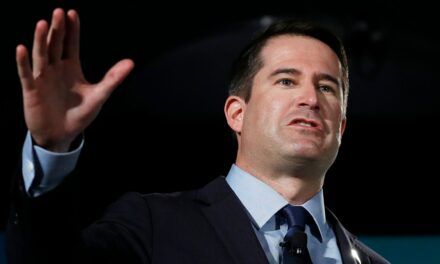We support our Publishers and Content Creators. You can view this story on their website by CLICKING HERE.
States in play for both candidates in this year’s presidential election all allow voters to cast their ballots by mail, a process that has attracted controversies and legal battles in the final weeks of campaigning. That includes Pennsylvania, Michigan, and North Carolina — each of which has seen concerns raised over absentee ballots.
These swing states see varying degrees of mail-in voting, and campaigns, political operatives, and election policy hawks are closely tracking the vote-by-mail process because of how it could affect the election outcome.
Attorney Chad Ennis, vice president of the Honest Elections Project, highlighted some of the top concerns he has seen regarding ballots sent through the mail.
“The primary problem with mail voting is that it occurs outside of the supervision of election officials,” Ennis told the Washington Examiner. “There is always a question of who actually filled out the ballot. We do have safeguards in place. But those safeguards — ID numbers, signature matching, witnesses, etc. — are under constant attack by the Left.”
Requests for mail-in ballots have plummeted since 2020, when many states eased their voting policies in response to concerns about COVID-19. Still, according to data analyst John Couvillon, states including Michigan, Florida, Nevada, Pennsylvania, and Ohio have seen one million or more mail-in ballot requests, meaning these ballots could make or break races.

In North Carolina, where mail-in voting is less abundant, questions persist about whether voters who have requested mail-in ballots will be able to physically receive them after Hurricane Helene unexpectedly decimated the state’s Asheville region.
Below is a look at mail-in voting controversies in three key states with high electoral counts.
Pennsylvania
The Republican National Committee asked the Pennsylvania Supreme Court to stop the state’s 67 counties from issuing “notice-and-cure” procedures for mail-in ballots, but the state’s highest court, which has a Democratic majority, rejected the request this month.
The RNC had sought to rein in the ballot curing process in the Keystone State, where county election boards have significant discretion over accepting mail ballots and allowing voters to correct defective ones by submitting provisional ballots.
The RNC called it a “patchwork” of procedures and said Pennsylvania lacked uniformity on how it handled mail-in ballot curing. The committee said that recent statewide communication from the secretary of state about voters’ ballot curing rights could cause confusion because of the county-level variations.
The state Supreme Court’s decision meant that all counties could continue to use their discretion to notify voters if their mail-in ballots have problems and give the voters a chance to fix them. Defects on mail-in ballots have included missing dates, signature discrepancies, and envelope problems.
Pennsylvania has nearly 9 million registered voters, and in 2020, Trump lost the state by about 80,000 votes.
According to Couvillon’s data, Pennsylvania has seen a dramatic drop in mail-in ballot requests, but more than 1.6 million voters have requested them so far, meaning even a small fraction of provisional ballots could shift the results.
Henry Olsen, senior fellow at the Ethics and Public Policy Center, noted that in Pennsylvania, the presidential race could be called by 6 a.m. Wednesday after Election Day. But he cautioned that if the race is close enough and there are enough provisional ballots, that could change.
“If it’s very, very close, where the race could be decided by provisionals, we won’t know the winner [by 6 a.m.],” Olsen told the Washington Examiner.
Michigan
Michigan’s 15 electoral votes remain up for grabs, and of its 8.4 million registered voters, more than 2 million have requested mail-in ballots. About 400,000 voters have already returned those ballots, according to Couvillion’s data.
Olsen estimated that a substantial portion of Michiganders, about one in four, will vote by mail, and he said that while the party breakdown of who has requested mail ballots is not known in Michigan, it is clearly a “Democrat-favored method” there.

Republicans have signaled they are closely watching Michigan’s vote-by-mail process. The RNC brought two legal fights against Secretary of State Jocelyn Benson, an elected Democrat, in which it meticulously nitpicked guidance she issued regarding mail-in ballots.
Both lawsuits resulted in settlements that required Benson to update her guidance to clarify that election officials “must,” not “should,” match a number on the mailed-in ballot to a number on the envelope it arrived in.
Benson also had to modify instructions to election workers to clarify that they were required to mark their initials next to a signature on a mail-in ballot once they verified it.
North Carolina
The effects Hurricane Helene will have on voter turnout remain unknown, but North Carolina‘s election board is working to find improvised ways for voters to cast ballots after some of the western portion of the state was decimated by the storm.
In Asheville and the surrounding region, homes were wiped out, residents were displaced, and the United States Postal Service, which Ennis has said is already under scrutiny over whether it is capable of managing mail-in ballots, had to shutter dozens of its offices temporarily. Some still remain closed.
The election board data shows that out of more than 300,000 mail-in ballots requested, 38,000 have been returned. Among the emergency measures the board recently approved was one that granted 13 counties extended deadlines and location flexibility for requesting and submitting mail-in ballots, though submitting the ballot by the end of Election Day remains a requirement.
CLICK HERE TO READ MORE FROM THE WASHINGTON EXAMINER
If mail-in voting were to have any impact on North Carolina’s election results, “that would be a thing I would worry about if I were Democrats,” Olsen said.
He noted that mail-in voting was less favored to begin with among the red areas affected by the hurricane and that transient and mail-friendly voters in Asheville, a Democratic haven, could “very well disproportionately affect Democrats.”

 Conservative
Conservative  Search
Search Trending
Trending Current News
Current News 





